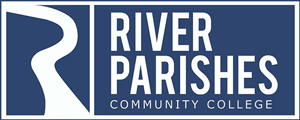Acing the Probationary Period on a New Job was originally published on Ivy Exec.
Employers use the probationary period to check if a new starter is a good fit. While this duration may feel scary and unsettling, it can help you improve your confidence and secure a job. It provides opportunities for career growth and enough time to adapt to workplace requirements. This period is also great for networking and proving you are an invaluable asset.
Are you looking for ways to shine through your probation? Here are some practical tips.
☑ Make a Great First Impression
The first impression is a valuable tool for forming lasting relationships. Most people will remember how you conducted yourself and dressed when they first met you. Once you land a job, arrive early on the first day. Read the dress code to know the expectations, or visit the company’s social media for clues.
Your first assignment will significantly influence your employer’s opinion of you. It may feel intimidating to ask your colleagues for help, but this is a great way to learn and avoid making mistakes.
If your first assignment is a collaborative one, ensure you participate. Avoid conflicts with other members, and if problems arise, solve them quickly. The employer will likely talk to the project manager about you, and you want them to have good things to say about your work and conduct.
Other ways to create a good impression during probation are:
- Attend necessary meetings and events
- Avoid workplace politics
- Check-in with your supervisor on the first day
- Learn your coworkers’ names
- Watch your body language
Your employer doesn’t expect you to know everything about your role on the first day. Feel free to ask questions and consult your colleagues. Getting help is always better than doing a task wrongly, wasting time and resources.
☑ Understand the Key Performance Indicators (KPIs)
KPIs help employers assess if employees meet individual and company targets. During probation, your boss will use several measures to determine if you should continue working for them.
Some employers may tell you their target for you, but others might not. Take some initiative and find out the performance goals you need to meet. Note them down and do a self-assessment every week or month. This way, you can determine if you’re on the right track and work on the weak areas before it’s too late.
The ability to handle feedback is a key indicator your employer may use for assessment during probation. You’ll often receive criticism from your seniors and sometimes colleagues. The opinions might feel too harsh and sometimes like a personal attack, but they will build you in the long run. Be open to feedback and adjust your work based on it to prove adaptability and commitment to self-improvement.
Productivity is another common KPI used for evaluation during probation. Your employer will measure your output based on work hours and determine how many resources you use to complete tasks.
Ace your probation by tuning out distractions that affect productivity. Refrain from checking your social media or making personal calls during work hours. Further, limit chats with colleagues and avoid workplace gossip.
You may be good at multitasking, but it can reduce your focus and lower productivity. Instead of juggling several tasks simultaneously, plan your work and use a checklist to keep track.
Other ways to boost your productivity during the probationary period include:
- Take breaks when necessary
- Refine your workspace to ensure it’s efficient and conducive
- Manage your time and energy properly
- Set small goals
- Set personal deadlines
☑ Build a Strong Network
Ensuring your employer notices you may be daunting, especially if you work for a big company. Networking is a great way to boost visibility and increase your chances of working on major projects.
Strengthen your connections with colleagues by sitting with them during breaks. Take interest in their hobbies and be open to connecting with them outside the workplace. These interactions are great for learning about each other, and you may even get yourself a mentor.
Every workplace needs new ideas to meet customer demand and stand out in the market. Networking will give you a fresh perspective and help you solve problems for your seniors. As you interact with other experts in your field, you gain new insights that you can pitch at work. In the long run, you’ll build your name as an innovative thinker and boost your chances of retention after probation.
Stepping out of a comfort zone can be scary if you are new in an industry. But it’s a great way to improve your confidence and social skills. Meet new people by attending corporate events, webinars, and workshops. Feel free to interact with executives from other companies, as they may help you keep track of industry trends.
☑ Look for Opportunities to Shine
A competitive workplace may make it more challenging to survive the probationary period. When contesting with other new hires, it’s easy to feel overlooked. So, how do you stand out without being too aggressive with your peers?
Focusing on your strengths and showcasing them during projects is a great strategy. When working on collaborative assignments, align with coworkers that complement your skills. Besides, pick projects that challenge you so that you can learn new things. You may also offer to help your colleagues and seniors with their tasks. This way, you’ll form good relationships quickly and outshine your peers.
Getting along with your bosses can help you pass the probationary period. It also makes it easy to meet long-term objectives that propel your career. While the goal isn’t to be the favorite employee, it won’t hurt if the executives like you.
Exceed expectations by understanding how your employer acts and thinks. Ensure you stay on their good side by updating them on your work progress and holding yourself accountable. It’s also advisable to show reliability through consistent performance and punctuality.
☑ Excel Your Probation With Ease
Navigating probation on a new job doesn’t have to be stressful. Focus on your goals and maintain a good reputation at work and in your social circles. Additionally, set realistic targets based on the company’s goals and review your performance often.
Register with Ivy Exec now for more career advice.





